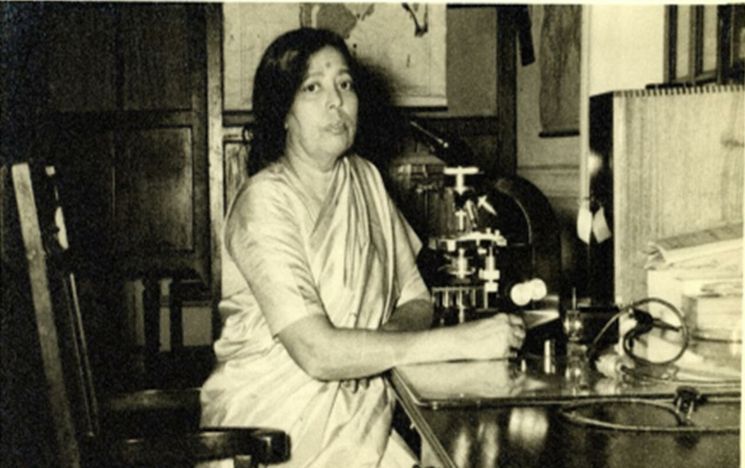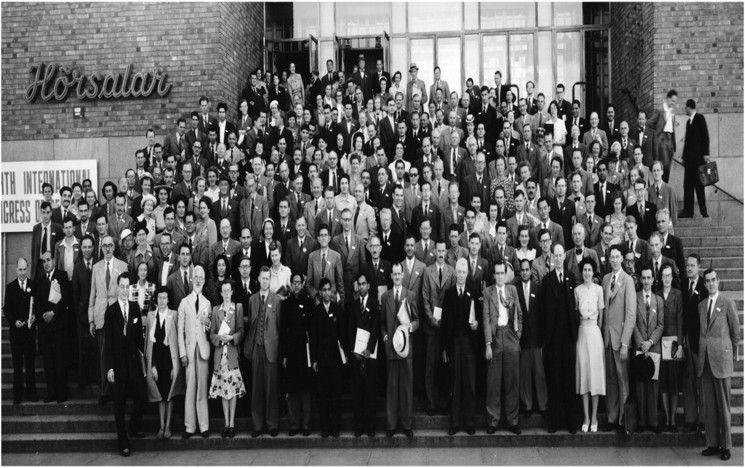Science and the Colonies:
Hidden Networks of Botanical Science, Ecology and Eugenics at the End of Empire
 Janaki Ammal at the Botanical Survey of India, 1950s
Janaki Ammal at the Botanical Survey of India, 1950s
Prof Vinita Damodaran (Principal Investigator, History), Dr Mick Frogley (Co-Investigator, Geography), and Mike Rayner (PhD History) have been awarded an AHRC/NERC research grant for this interdisciplinary research project on colonial science which focuses on a triumvirate of geneticists at the heart of a twentieth-century international scientific network, and hope to document the unexplored relationships between British scientists such as J.B.S. Haldane, C. D. Darlington, and Indian scientists including the remarkable woman Janaki Ammal. It will look at how these relationships helped to shape the scientific landscape of both the UK and India in the field of botany, ecology, genetics, and eugenics. The project partner is the John Innes Centre in Norwich, Britain's leading biological sciences centre whose director, Prof Dale Saunders (FRS), is thrilled that 'three John Innes alumni and their archives have been identified as key to understanding the development of Indian genetics'.
The Project was launched under the auspices of The Centre for World Environmental History (CWEH). This follows previously funded projects from 2012-2017 funded by the British Academy, the AHRC and the Canadian Social Science Research Council on the Botanical and meteorological history of the Indian Ocean. The Centre, founded in 2002 as a centre of excellence for the environmental history of the global south is internationally recognised for its pioneering work on climate and the environment.
 2. Participants of the 1948 international Congress of Genetics that included JBS Haldane and CD Darlington and several Indian scientists
2. Participants of the 1948 international Congress of Genetics that included JBS Haldane and CD Darlington and several Indian scientists